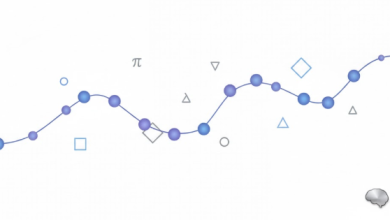
The notion of Agentic AI encompasses a type of artificial intelligence that possesses the capacity to engage in advanced reasoning, strategic planning, and autonomous decision-making. This intriguing concept invites extensive exploration, particularly given its potential to facilitate groundbreaking discoveries that could be worthy of prestigious accolades, such as a Nobel Prize. Imagine an AI system capable of independently assessing complex scenarios, formulating innovative solutions, and executing plans that address some of humanity’s most pressing challenges. The implications of such technology are profound, as it could revolutionize fields ranging from medicine to environmental science, thereby reshaping our understanding of what is possible in scientific research and human advancement.
Unlocking the Future: The Exciting Potential of Agentic AI in Scientific Discovery
Imagine a world where artificial intelligence takes on a more active role in the scientific process, revolutionizing the way we explore and understand our universe. The potential benefits of agentic AI in scientific discovery are not only fascinating, but they could also reshape the very fabric of our research efforts. From accelerating data analysis to generating innovative hypotheses, agentic AI empowers scientists to push the boundaries of knowledge further than ever before. With its ability to learn from vast datasets and suggest novel experiments, this cutting-edge technology holds the promise of unlocking breakthroughs that were once thought to be unattainable. The future of science is bright, and with agentic AI by our side, we’re just beginning to scratch the surface of what we can achieve!
- Accelerating scientific research with enhanced efficiency: Artificial intelligence agents can significantly expedite scientific exploration by automating various tasks that are traditionally time-consuming. This includes advanced data analysis, where AI can sift through vast amounts of information rapidly, generate insightful hypotheses based on existing data, and assist in designing experiments that optimize resource use and improve outcomes.
- Improving accuracy and reliability in findings: The power of AI lies in its ability to process enormous datasets at remarkable speeds. By employing sophisticated algorithms, AI can identify intricate patterns within the data that might elude human researchers, thereby enhancing the accuracy and robustness of scientific discoveries. This ensures that findings are not only more reliable but also grounded in comprehensive data analysis.
- Generating novel hypotheses and groundbreaking insights: One of the remarkable capabilities of AI is its propensity to uncover unexpected correlations and trends within datasets. This can lead to the formulation of innovative hypotheses that challenge existing theories, paving the way for transformative discoveries across various scientific disciplines.
- Addressing data limitations in complex fields: Advanced AI methodologies, such as graph neural networks and causal inference techniques, are particularly adept at managing the complexities associated with incomplete, noisy, or irregular data. These challenges are common in specialized fields like astrophysics, where traditional data handling methods may fall short. By utilizing these cutting-edge AI approaches, researchers can derive meaningful insights even from imperfect datasets, ultimately advancing our understanding of the universe.
Navigating the Hurdles: Challenges and Limitations
Life presents a myriad of obstacles that can truly test our determination and ingenuity. We often encounter unexpected setbacks, such as sudden job loss or an illness, that can steer our plans off course. Additionally, we may face inherent limitations, like financial constraints or time restrictions, that force us to rethink our strategies.
These challenges, while daunting, hold remarkable potential for personal growth and creative innovation. They push us to rethink our approaches and adapt in ways we never anticipated. By tackling these hurdles head-on, we not only overcome immediate difficulties but also develop new skills and perspectives that can enhance our overall journey. Let’s delve deeper into these challenges and uncover the unique opportunities they offer for transformation and advancement.
- Limited Human-Like Understanding: Although contemporary AI systems exhibit impressive capabilities in processing and analyzing vast amounts of data, they often fall short of the nuanced intuition and deep comprehension necessary for making groundbreaking conceptual advancements. This deficiency can hinder their ability to generate truly innovative ideas or foresee the broader implications of scientific discoveries.
- Bias and Reliability Issues: AI systems can inherit biases present in their training datasets, which can lead to skewed or unethical outputs, particularly in sensitive fields such as healthcare. For instance, if an AI trained on biased data evaluates patient treatments, it may perpetuate health disparities instead of promoting fair outcomes. Ensuring the trustworthiness of AI systems is crucial to prevent harm and build confidence among users.
- Dependence on Data Integrity: The performance and utility of AI models are closely tied to the quality of the data utilized during their training phases. Inadequate, incomplete, or erroneous data can lead to inaccurate predictions and ineffective solutions. It highlights the importance of robust data collection and preprocessing methods in enhancing AI reliability.
- Challenges in Human-AI Collaboration: Establishing effective teamwork between human researchers and autonomous AI agents presents numerous obstacles. Differences in communication styles, expectations, and decision-making processes can complicate interactions. Overcoming these challenges requires developing interfaces and protocols that facilitate smoother exchanges and foster mutual understanding.
- Ethical Implications: The integration of AI into research practices raises significant ethical dilemmas, particularly concerning the societal ramifications of its decisions. Questions arise about the extent to which AI should influence critical research outcomes and the moral responsibilities of scientists in overseeing the contributions of AI. These considerations necessitate a thoughtful assessment of the role AI should play in shaping research agendas and public policies.
Conclusion
The field of artificial intelligence, especially in the realm of Agentic AI, showcases extraordinary potential to not only expedite but also enrich the process of scientific discovery. This advanced form of AI is capable of generating innovative hypotheses that propel research forward and conducting intricate data analyses with remarkable speed and precision. Nevertheless, the technology is still in a state of rapid development and continues to grapple with several constraints.
The question of whether an AI system might one day attain the profound level of scientific understanding necessary to independently resolve an unknown challenge — perhaps even earning a Nobel Prize in the process — remains a topic of ongoing debate among experts and researchers. Many are exploring the complexities of scientific reasoning and creativity, elements that are deeply ingrained in human thought.
However, what is becoming increasingly clear is the AI’s burgeoning capability to assist human scientists and researchers, acting as a powerful tool that augments their efforts in exploring the complexities of the universe. The collaboration between human intellect and AI could lead to groundbreaking discoveries and solutions to some of science’s most pressing questions. This synergy holds promise for the future of scientific inquiry, suggesting a new era where human expertise and advanced technology work hand in hand to push the boundaries of knowledge even further.
Author Bio
Name- Ritesh Thakur
Title- Manager
Ritesh Thakur is a seasoned expert in global supply chain transformation, with over 17 years of extensive experience in driving technology-enabled business transformations. He specializes in the complex field of SAP supply chain optimization and Advanced Available-to-Promise (ATP) solutions. Throughout his career, Ritesh has collaborated closely with top consulting firms, refining his skills to adapt to the industry’s evolving demands.
His expertise spans various sectors, with a particular focus on the dynamic semiconductor, life sciences, and healthcare industries. Ritesh has successfully managed intricate ERP implementations and spearheaded innovative business process enhancements, achieving significant improvements in efficiency and effectiveness. His professional journey has taken him across multiple continents—from the bustling streets of the United States to the innovative hubs of the European Union, and from the vibrant markets of Asia to the serene landscapes of New Zealand. This diverse geographical experience has broadened his perspective, providing him with a deep understanding of the complex challenges faced by global supply chains.
In addition to his practical experience, Ritesh has actively contributed to the field by authoring insightful articles on supply chain topics, which have been published in SAP Press and other esteemed international journals. His recent work has resonated with industry professionals and garnered attention from prominent media outlets, further establishing his reputation as a thought leader in the supply chain domain.





